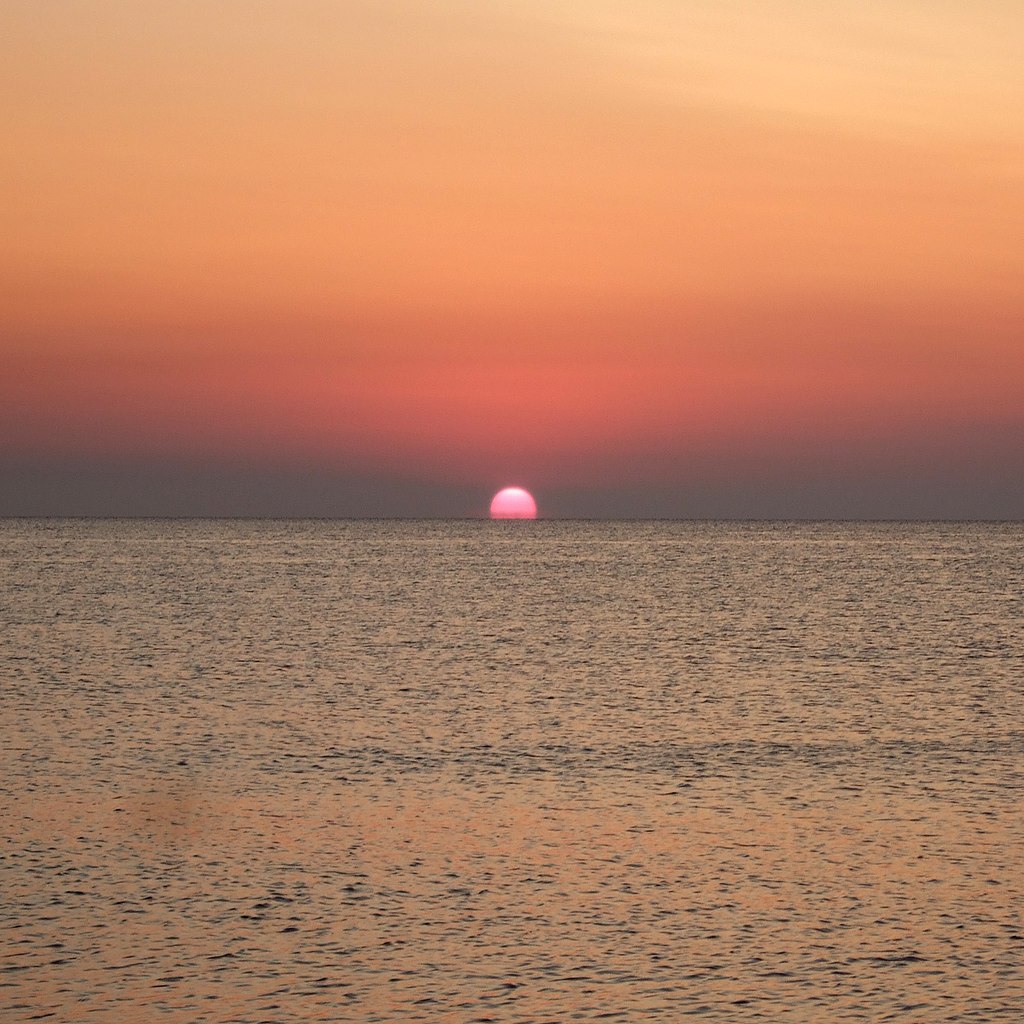Thessaloniki gets ready for its metro launch in November
The underground rapid transit lines have been under construction for almost two decades due to various project delays
 TheMayor.EU logo
TheMayor.EU logo July Morning is one of Bulgaria’s newest traditions, which sees thousands of people go to the seacoast and celebrate the sunrise on 1 July
Every year Bulgarians celebrate the start of summer by waiting for the sunrise on 1 July in a hippie-rooted tradition started back in the 1980s, called July Morning. The festival has its origins in the dissident movement back when the Iron Curtain was still up, symbolising the unbreakable yearning to be free, which since 1989, has turned into a celebration of freedom itself.
Every year hundreds of people from all around the country flock to the Black Sea to meet the first sunrise of July. The idea is that this is a sort of symbolic start to the summer –a season-long period where every day feels like a holiday.
People go camping or attend music beach festivals, organized specifically for the occasion. Others go to the cities of Varna or Burgas or other tourist resorts on the Black Sea, or venture to natural camping spots, such as Irakli or Kara-Dere. Some hitchhike, and yet others do not even go to the coast, preferring to celebrate the occasion in their hometowns.
 July morning in the 2019 European cultural capital Plovdiv, Bulgaria,
July morning in the 2019 European cultural capital Plovdiv, Bulgaria,
Source: Vislupus on Wikipedia, CC BY-SA 4.0
The tradition is named after July Morning, a song by the British band Uriah Heep. John Lawton, frontman of the band, usually comes to perform at Kamen Bryag, a village located in the north of the Bulgarian coast. The cliffs by the village are also the easternmost point of the country, which means they are also the first to receive the sun rays.
The celebration has grown so massive that keeping to its free-spirited nature and rock’n’roll cred is no longer a must, as different venues across the country offer a plethora of experiences for the occasion.
Like any proper cultural tradition, there are multiple versions on the origins of ‘July Morning’, leaving a certain degree of charming ambiguity common to word-of-mouth stories.
According to one story, a young man serving in the army during the tail end of the 1970s, back when Bulgaria was still a communist dictatorship and conscription was mandatory, was on guard duty at night.
 The sun rising over the Black Sea on the morning of 1 July.
The sun rising over the Black Sea on the morning of 1 July.
Source: Boby Dimitrov on Wikipedia, CC BY-SA 2.0
Being of a hippie persuasion, he felt in low spirits at the time and made a vow that no one should find themselves alone on the first morning of July.
According to another story, three friends were having a night at the beach. They had a battery-powered cassette player and the three of them each liked Jimmy Hendrix, Uriah Heep and Deep Purple, so they were taking turns to play their favourite music.
Just as the sun was coming up, the Uriah Heep fan had his turn, and he set the player to the July Morning song, giving birth to the tradition.
According to another story, this is an ancient Thracian ritual, but that seems highly unlikely. Traditions just tend to try and find prior justification for their existence, as a way of validation.
In any case, what happened after that legendary night, was that people in Varna started gathering at the beach and every year the crowd grew until the celebration spilt over to the rest of the country.
This is how a modern tradition was born.
If you want to keep up with how European cities and regions are changing, follow us on Facebook, Twitter and Instagram.

The underground rapid transit lines have been under construction for almost two decades due to various project delays

Now you can get your wine in Talence by paying directly in Bitcoin

That’s because the state has to spend money on updating the railway infrastructure rather than subsidizing the cost of the popular pass

Rethinking renewable energy sources for the urban landscape

The examples, compiled by Beyond Fossil Fuels, can inform and inspire communities and entrepreneurs that still feel trepidation at the prospect of energy transition

Now you can get your wine in Talence by paying directly in Bitcoin

The 10th European Conference on Sustainable Cities and Towns (ESCT) sets the stage for stronger cooperation between the EU, national and local level to fast track Europe's transition to climate neutrality.

At least, that’s the promise made by the mayor of Paris, Anne Hidalgo

The underground rapid transit lines have been under construction for almost two decades due to various project delays

At least, that’s the promise made by the mayor of Paris, Anne Hidalgo

Hostal de Pinós is located in the geographical centre of the autonomous region

Despite its church-y name, the district has long been known as the hangout spot for the artsy crowds

Urban dwellers across the EU are having a say in making their surroundings friendlier to people and the environment.

Forests in the EU can help green the European construction industry and bolster a continent-wide push for architectural improvements.

Apply by 10 November and do your part for the transformation of European public spaces

An interview with the Mayor of a Polish city that seeks to reinvent itself

An interview with the newly elected ICLEI President and Mayor of Malmö

A conversation with the Mayor of Lisbon about the spirit and dimensions of innovation present in the Portuguese capital














